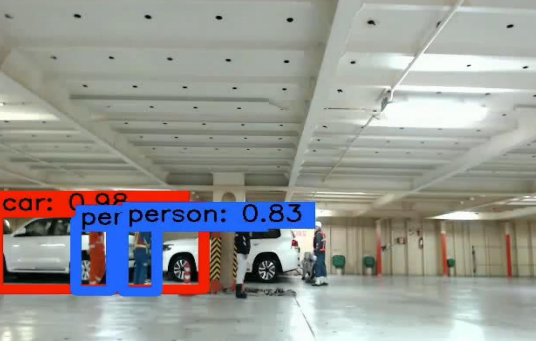Japanese company K LINE and IBM Japan conducted a field trial in an effort to strengthen the safety management of cargo handling.
In fact, Internet of Things (IoT) devices and artificial intelligence (AI) were utilized to collect and analyze information on driving of vehicles during operation in cargo holds, positional information of vehicles and workers, and vital information of workers.
As explained, the field trial verified the restriction of driving speed of vehicles, prevention of contact between vehicles and workers, prevention of collisions of vehicles, and collection of vital information of workers.
Specifically, with the cooperation of a stevedoring company, beacons (positional information sensors), surveillance cameras, and speed measurement equipment were installed on the cargo deck to collect data.
Furthermore, AI-based image recognition technology was used to separate vehicles and workers based on camera images to determine the status of their proximity. In addition, heart rates data were obtained from wearable devices and based on analyzed data by algorithm to ascertain trends in driver stress.
The aim is to improve work quality by strengthening the safety management of cargo handling by analyzing this diverse and complex data and visualizing the number and condition of speed violations and near-miss incidents in the vessel.
…K Line noted.
IBM Cloud, which is secure and has a track record in many companies as a data platform, was used for data analysis. IBM Japan created IBM Maximo Monito, a solution for remote monitoring, on IBM Cloud to provide real-time visualization of large data sets, AI-based anomaly detection, and a configurable dashboard. This solution enabled the collection, management, and analysis of sensor information, and data scientists played a central role in supporting tasks such as IoT application design and data analysis.
Concluding, K LINE will conduct further verification aimed at practical implementation based on the results of this field trial.
































































